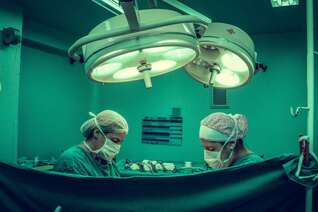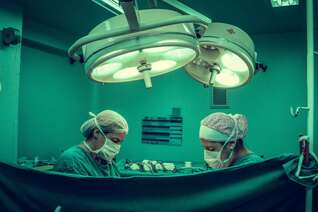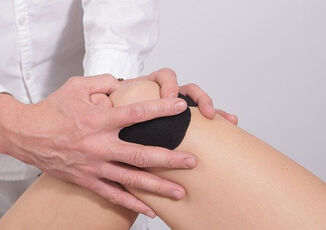|
The decision to have surgery following an injury is a serious and complicated one. It can be difficult when navigating the minefield of information you receive to know what is the right pathway for you. Unfortunately, the answer is not always obvious which can be confusing. To ensure that surgery is right for you, here are a few questions it pays to ask yourself and your medical team before making a decision. How much will surgery cost and will I need to take time off work?
One of the major downsides of surgery is that you will often need to take time off work to recover, resulting in lost income. The cost of the surgery itself may not be completely covered by your insurance, particularly for elective procedures and you will often need to have physiotherapy afterwards. The cost of surgery can really add up, and if you can achieve similar results with physiotherapy alone, you might find yourself in a much better financial situation. What are the potential complications and success rates for your surgery? All surgeries come with risks and potential complications, the probability of these will vary depending on the type of surgery, your age and general health. It is also important to compare the success rates of surgery with a period of physiotherapy treatment. Optimal surgical outcomes still often depend on effective post-surgery management, which can be an argument for considering physiotherapy first. In some cases, however, healing simply will not occur without surgical intervention and physiotherapy will have little success in resolving the issue. What are your post-surgical goals? Not everyone wants to ski down a mountain, but for some, being able to push and trust their bodies is important for both their income and quality of life. Surgery that aims to repair damaged structures might be the right decision for someone who has high demands on their body, but not for another person who isn't very active. Setting your goals for your body can help to guide your decision making process. Before making any major decisions, it is important to consult your medical, surgical and physiotherapy team to ensure you are well educated in all the risks and rewards of undergoing surgery.
0 Comments
A serious injury of the knee is a tearing of the ACL (Anterior Cruciate Ligament). This ligament is important for stability of the knee and may need to be repaired surgically. The primary function of the ACL is to keep the bottom surface of the knee joint from sliding forwards during movement. An unrepaired knee may feel unstable or give way suddenly. Not all ACL injuries require surgery and some may heal well with proper rehabilitation, however for those who do need surgery, there is a significant rehabilitation period afterwards. What does the surgery consist of?
Each surgeon will have a slightly different technique for surgery. The most common approach is the arthroscopic approach, which uses a small camera and allows the surgeon to make only small incisions into the knee. They will then replace the torn ligament with either a graft from a tendon or ligament at another part of the body or using a synthetic graft. How long does rehabilitation take? Full rehabilitation following surgery can take 9 to 12 months and is divided into different stages. As surgeons can have different protocols for their approaches to surgery, time frames will vary for everyone. Initially after surgery, the graft will be quite weak while a new blood supply is being established. It can take up to 12 weeks before the graft is at its strongest point and evidence suggests that it may never have the strength of the original ligament. In the early stages, rehabilitation will be focused on restoring movement to the joint and strengthening the muscles around the knee without putting any undue stress on the graft. As the graft begins to heal and strengthen, rehabilitation can progress to include stability and control exercises and gradually build up to a complex program that prepares the knee for a full return to sport. The path to full rehabilitation from a knee reconstruction can be a long and bumpy one, however, there are high success rates with this surgery, particularly when followed up with full physiotherapy rehabilitation. What is an ACL tear and how does it occur? The ACL, or anterior cruciate ligament, is a strong piece of connective tissue which helps attach the thigh bone (femur) to your shin bone (tibia). The ACL provides stability to the knee joint as it prevents the tibia from sliding forward relative to the femur. ACL tears are a common sporting injury, however they can also occur from everyday activities. The most typical mechanisms of injury are landing awkwardly from a jump, twisting the knee, or suddenly stopping while running. The ACL may also be injured during knee hyperextension, or getting hit on the outside of the knee. Often, other tissues surrounding the knee are also damaged, including the medial collateral ligament, meniscus, joint cartilage and bone surfaces. The ligament can be stretched, partially damaged or completely torn. What are the signs and symptoms?
Many people report hearing a “pop” in the knee along with immediate pain and swelling. Decreased range of movement of the knee is common and the injured knee is typically unable to take full weight when standing or walking. The knee may also feel unstable, with a sensation of “giving way”. Poor balance and coordination may also be experienced. Smaller tears of the ligament may have only mild symptoms, however, more severe tears will have more significant pain, swelling and instability. Is surgery necessary? Traditionally, surgery was thought to be necessary for all full-thickness ACL tears. A series of recent studies have shown however, that outcomes are often the same for people who chose surgery and those who didn’t, both in terms of recovery and future risk of osteoarthritis. Individual circumstances will impact this decision. Elite athletes and cases with additional meniscal tears may do better with surgery. Generally speaking however, with time and full rehabilitation, many people can return to their previous levels of activity without surgery. How can physiotherapy help? For both surgical and non-surgical recovery from ACL tears, physiotherapy rehabilitation is essential for a full recovery. Your physiotherapist will assist you with improving your knee range of movement, lower limb strength, balance, stability and coordination. You will re-learn the tasks of walking, using stairs, and negotiating obstacles with retraining of your balance and control. Early in rehabilitation, the RICE protocol (rest, ice, compression, elevation) is used in conjunction with static resistance type exercises to improve muscle contraction in the leg and increase blood flow to the area. Throughout your rehabilitation program, you will progress through a variety of strength and mobility exercises targeted towards your individual needs, with goals of returning to your favourite sport or hobby as soon and as safely as possible. |
Categories
All
|




